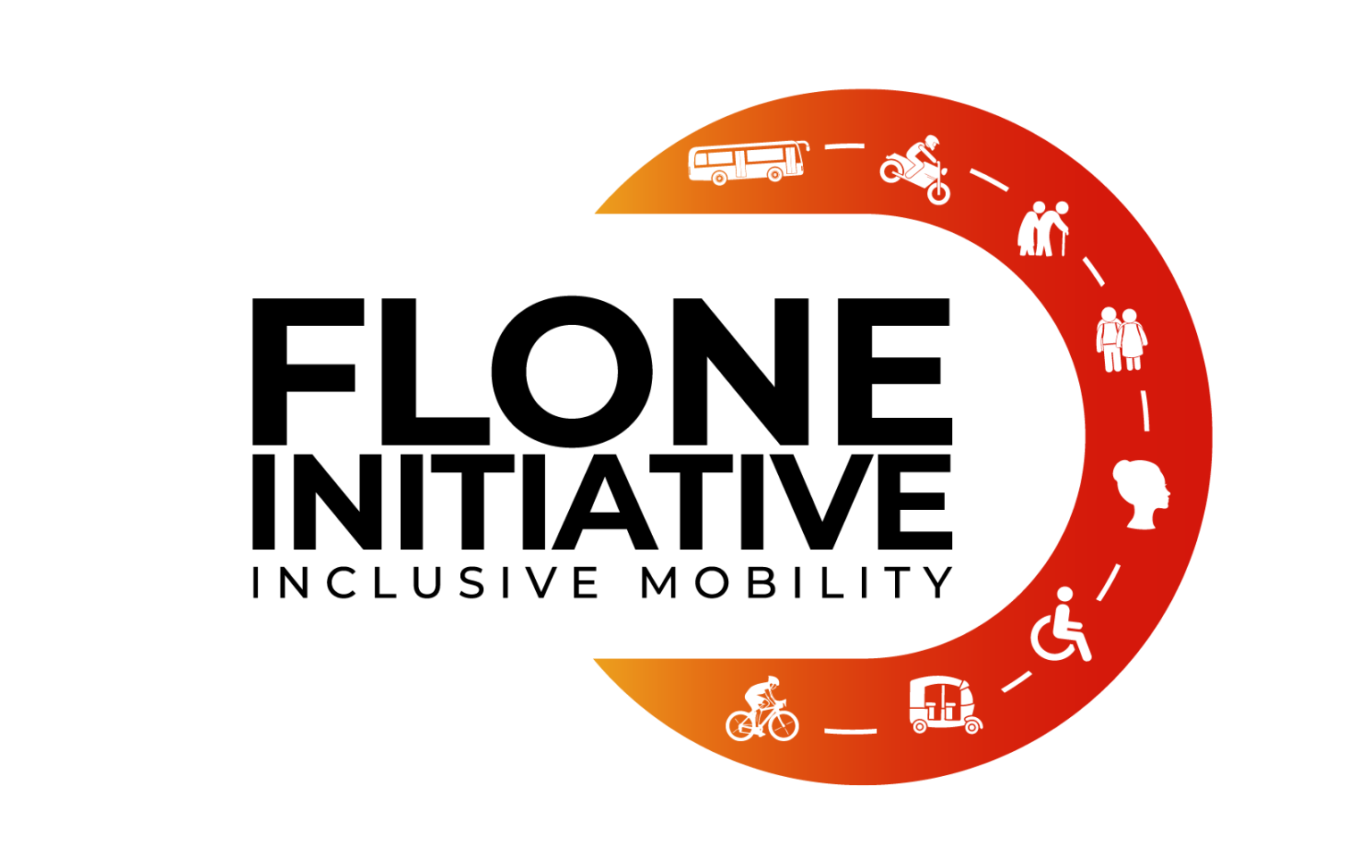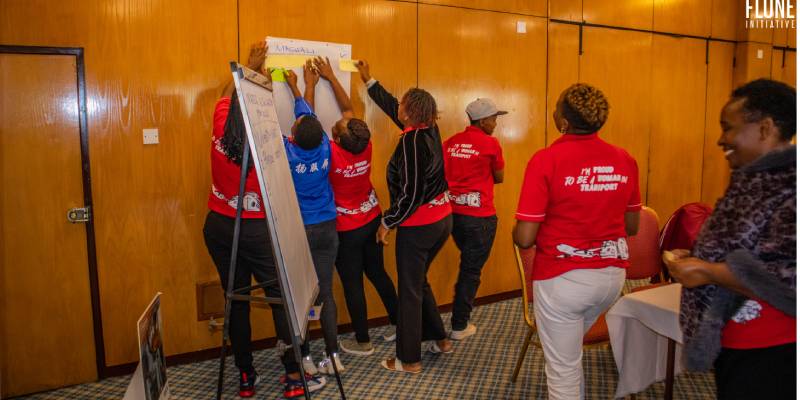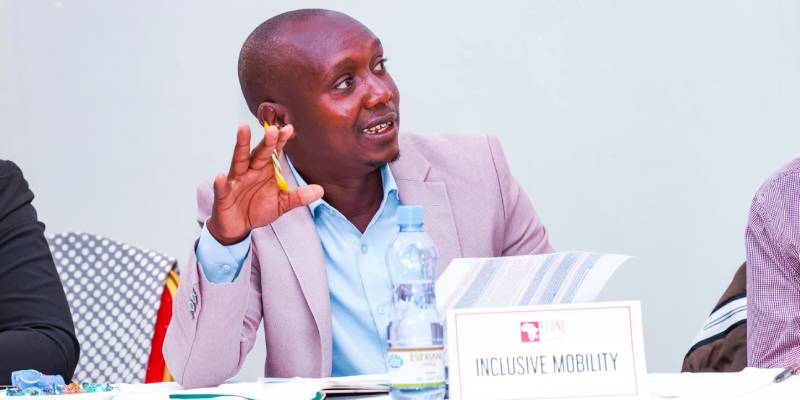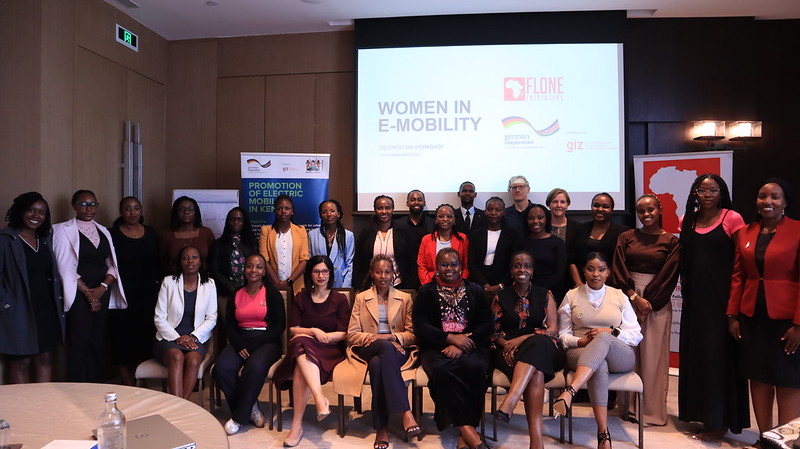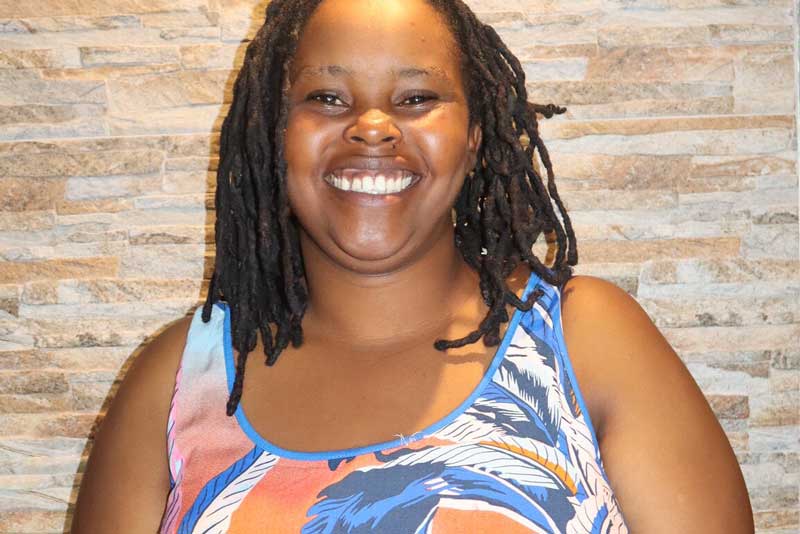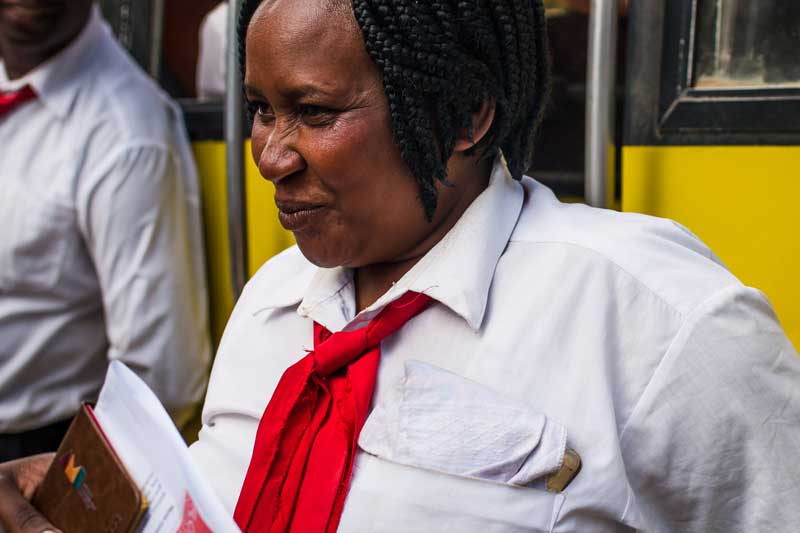Flone Initiative’s Public Safety Certificate Program (Usalama wa Uma) is the organization’s flagship program. Inaugurated in 2015, Usalama wa Uma was developed in response to the string of public stripping incidences at matatu stages in Kenya in 2014 and as a follow-up action to the national #MyDressMyChoice campaign. The #MyDressMyChoice movement fueled awareness on the prevalence of violence against women in the Transport Industry, supported survivors in 3 criminal cases, with 2 receiving public awareness resulting in 13 people prosecuted. It also led to lasting policy change in passing a law that made stripping of women illegal and punishable for up to 10 years.
The Usalama wa Uma program trains public transport providers (mostly matatu drivers and conductors) to prevent sexual harassment, gender sensitization, customer service and personal and professional development. As of 2019, Flone Initiative has conducted training for over 700 public transport workers in Nyeri, Githurai 44 & 45, Bungoma, Mombasa, Nairobi, Kisumu, Kayole, Embakasi and Nakuru.
